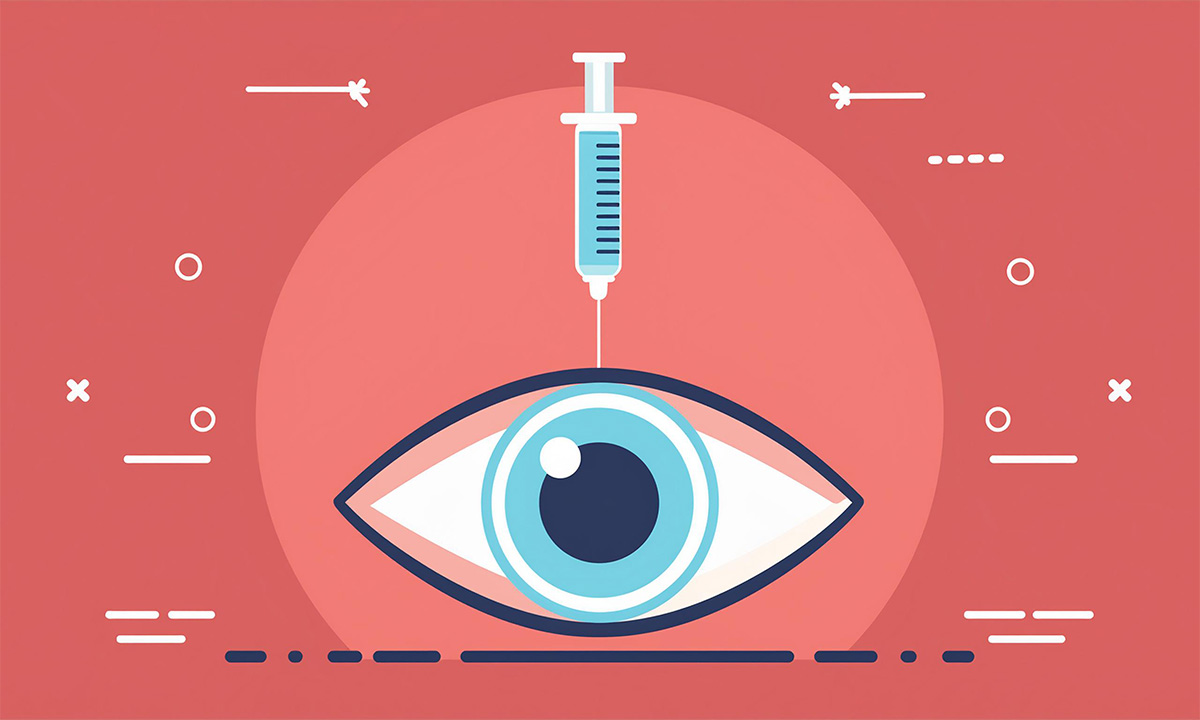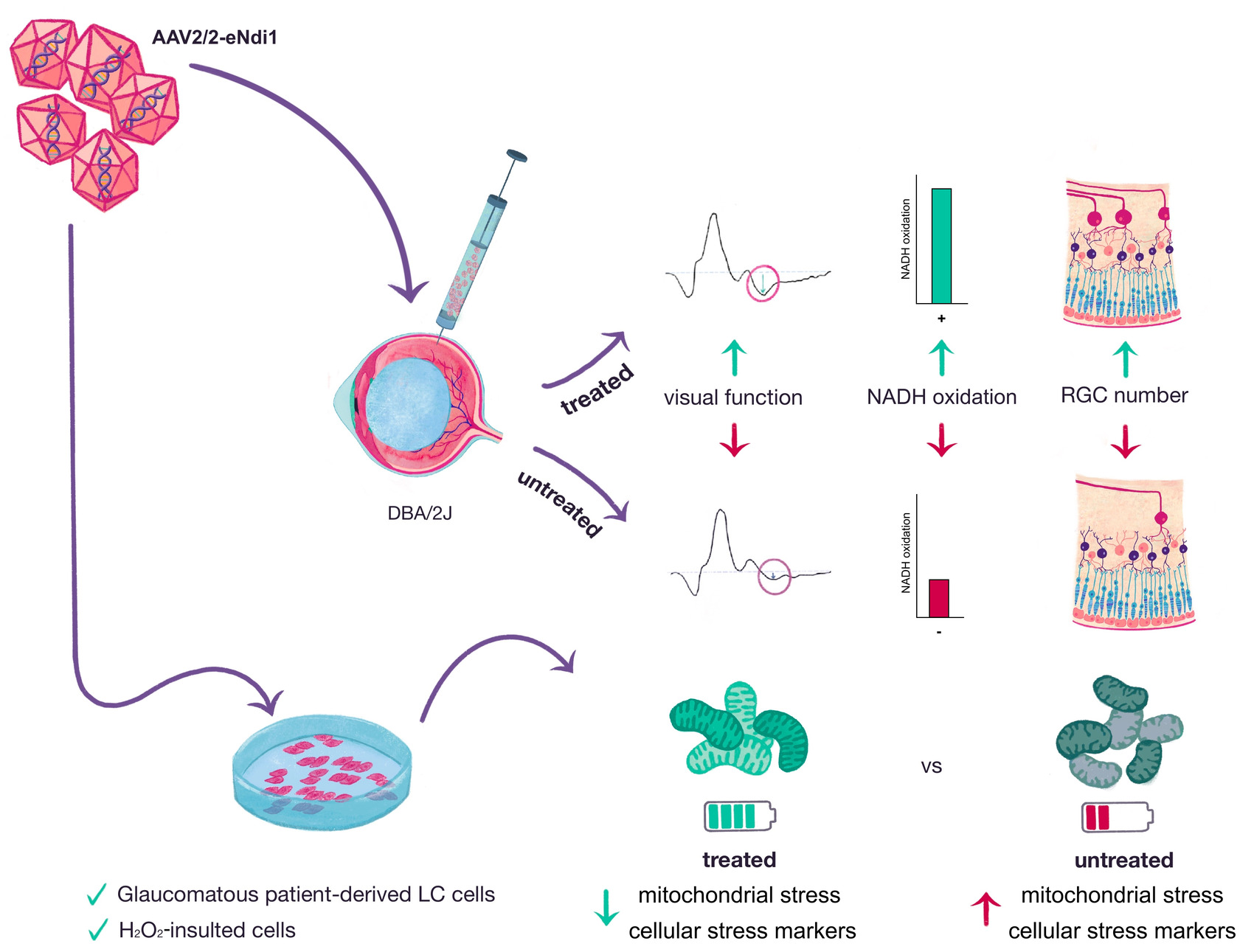Gene therapy offers promise for treating glaucoma – as well as AMD
Scientists from Trinity College Dublin have developed a gene therapy that shows promise for treating both glaucoma and dry age-related macular degeneration (AMD). The scientists have just published their research in the International Journal of Molecular Genetics. Their work shows how the gene therapy conferred significant benefit in animal models, and in human cells derived from people with glaucoma.

Specifically, the therapy protected key retinal ganglion cells (RGCs) and improved their function in an animal model of glaucoma. In human retinal cells, delivery of the gene therapy increased oxygen consumption and ATP (energy) production, indicating enhanced cell performance.
First author of the published research article, Dr Sophia Millington-Ward, Research Fellow in Trinity’s School of Genetics and Microbiology, said: “Glaucoma is a complex group of optic neuropathies and a leading cause of blindness. In Europe, roughly 1 in 30 people aged between 40 and 80 years have glaucoma, and that rises to 1 in 10 in persons over 90, so this is a really common condition that badly needs new treatment options.”
In the study, NDI1-based gene therapy, which improves mitochondrial function and reduces reactive oxygen species, was delivered intraocularly via an adeno-associated viral vector (AAV). This AAV-NDI1 therapy protected RGCs from cell death in treated versus control eyes in aged DBA/2J mice, a murine model of glaucoma.
The photonegative responses (PhNRs) of RGCs were also improved in these mice. AAV-NDI1 also provided benefits in glaucomatous human lamina cribrosa (LC) cells by significantly increasing basal and maximal oxygen consumption rates and ATP production in these cells. Similarly, NDI1 therapy significantly protected H2O2-insulted primary porcine LC cells from oxidative stress.
Graphical Abstract / International Journal of Molecular Genetics
Jane Farrar, Research Professor in Trinity’s School of Genetics and Microbiology at Trinity, is the senior author of the published research article. She added:
“Developing broadly applicable gene therapies for large numbers of patients is particularly important, given high development costs associated with each therapy – and here we have highlighted this therapy has real potential for boosting mitochondrial function in glaucoma.”
Translation of the studies towards the clinic and patients, while involving many additional steps, is the next focus.
Based on these and other foundational achievements, the Trinity team – together with Loretto Callaghan – recently founded Vzarii Therapeutics to expedite future development of the dry AMD and glaucoma gene therapies towards human clinical trials.
International Journal of Molecular Genetics: AAV-NDI1 Therapy Provides Significant Benefit to Murine and Cellular Models of Glaucoma
Source: Trinity College Dublin
